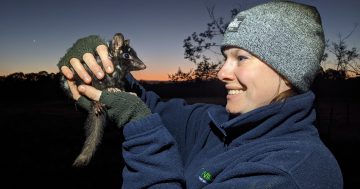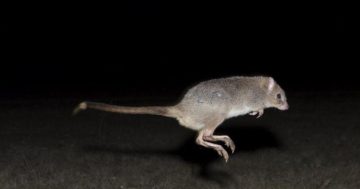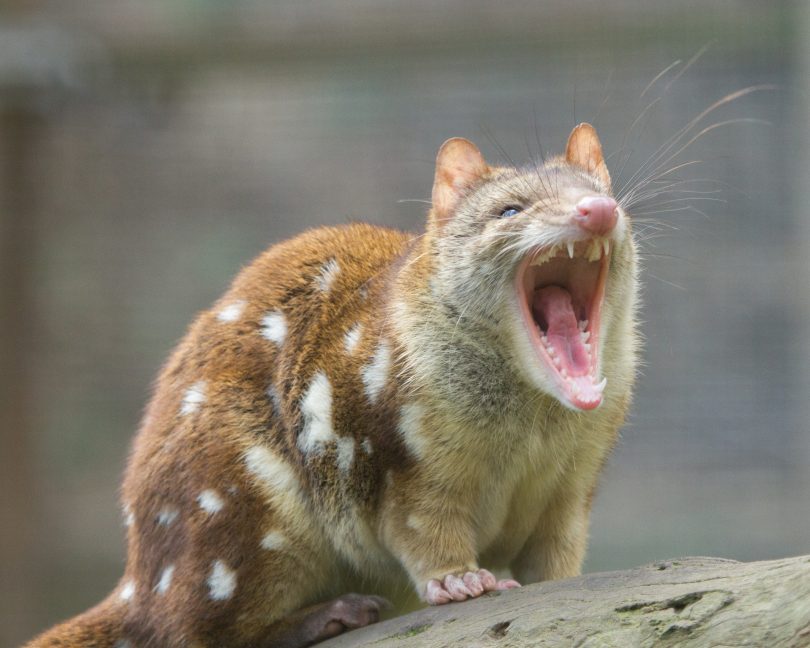
The sharp teeth of a spotted-tail quoll on full display. Photo: Supplied.
The number of native eastern quolls in Canberra is on the increase thanks to the nurturing nature of the female of the endangered species.
After the first quolls were reintroduced to Mulligans Flat Woodland Sanctuary, in Gungahlin, in 2016, their survival rate had dwindled to only 29 per cent.
The males tended to run away, only to be killed by predatory foxes.
Now an experimental research project, led by researchers from the Australian National University (ANU) has found a new way to boost survival rates of eastern quolls reintroduced to the ACT.
PhD scholar Belinda Wilson said the project has been able to boost survival to 77 per cent in a second trial, and then to 88 per cent by the third trial.
“In 2016, we released both males and females, but most of the males escaped the sanctuary fence and were killed by foxes,” she said.
“In the second release, we trialled releasing only mothers with small pouch young. This meant the quolls settled into the sanctuary so they could raise their young.”
Ms Wilson said the results from the second and third releases had far exceeded her expectations as well as those of the rest of the team.
“This is a really exciting result and gives us the courage to expect that eastern quolls will make a comeback to the ACT and beyond,” she said.
“It also demonstrates the value of adapting our tactics across multiple trials and learning as you go.
“In our case, using females with pouch young helped us bring in genetics from multiple parents while encouraging the quolls to settle into their new home.
“We hope this will encourage other practitioners across the world to think about their tactics, embrace uncertainty, and adapt based on what the environment tells them.”
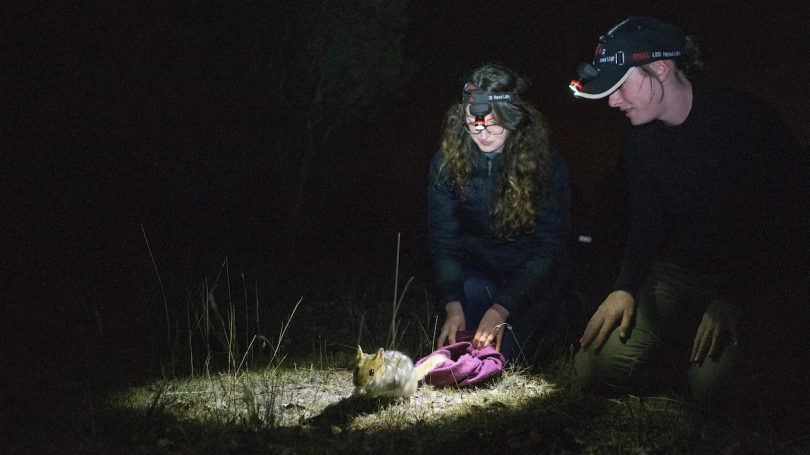
Researchers from the Australian National University conducting quoll monitoring at Mulligans Flat Nature Reserve. Photo: Lannon Harley, ANU.
The eastern quoll, a small carnivorous marsupial, was once widespread in southeast Australia.
Eastern quolls became extinct on the Australian mainland in 1967 due to predation by introduced foxes and cats, habitat loss, disease, accidental poisoning and deliberate interference by humans. Fortunately, populations lived on in Tasmania.
In 2018, the ACT Government established a plan to help protect the vulnerable spotted-tailed quoll and learn more about the elusive marsupial and its habits.
The spotted-tailed quoll – also known as the tiger quoll – had almost disappeared from the ACT and was listed as vulnerable on the ACT Threatened Native Species List in 2003, with only occasional sightings since the 1950s.
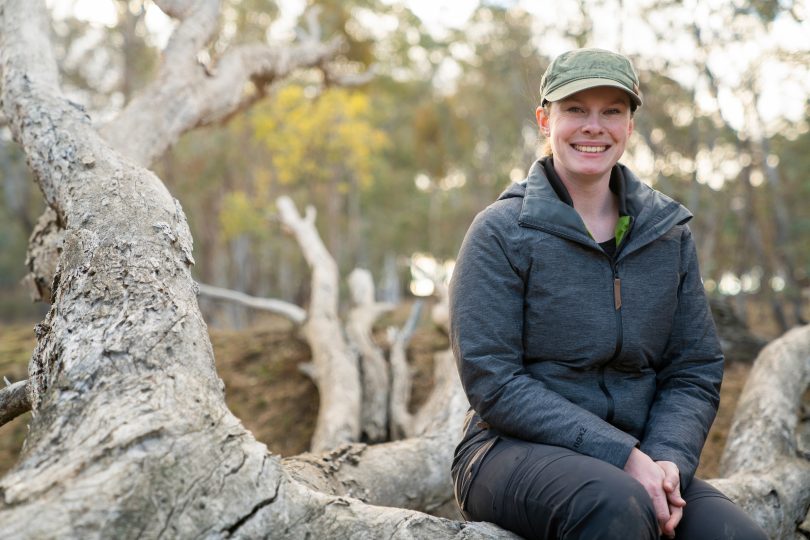
PhD candidate Belinda Wilson, from the Australian National University’s Fenner School of Environment & Society, at Mulligans Flat Nature Reserve. Photo: Lannon Harley, ANU.
The eastern quoll project is a collaboration between the ANU, ACT Government, ACT Woodlands and Wetlands Trust, and Odonata, a not-for-profit entity supporting biodiversity solutions. The project is supported by an Australian Research Council Linkage grant and the Tasmanian Department of Primary Industry, Parks, Water and Environment.
The first release at Mulligans Flat, in 2016, involved 14 quolls.
One half came from the Tasmanian wild, and the other half were bred in captivity by project partners at Odonata’s Mt Rothwell Biodiversity Interpretation Centre in Victoria, where the first reintroduction to the Australian mainland took place in 2002.
The final release of eastern quolls to Mulligans Flat Woodland Sanctuary took place in winter 2019, with the fourth generation of pups expected to emerge in October 2020.
The research has been published in journal PLOS One.
Original Article published by Michael Weaver on The RiotACT.




